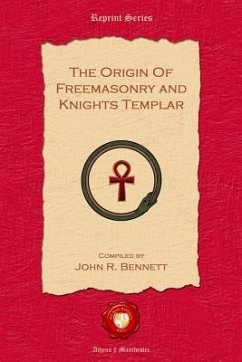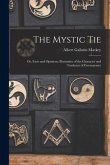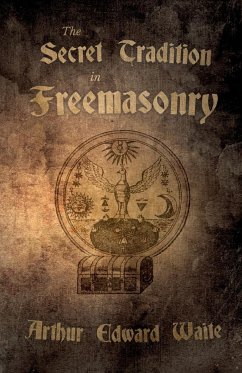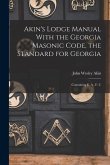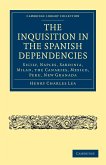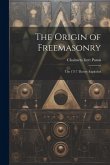The true history of Freemasonry is much like the history of a nation. It has its historic and its prehistoric era. In its historic era, it can be traced through various antecedent associations, similar in design and organization, to a comparatively remote period. Its connection with these associations can be established by authentic documents and by other evidence, which no historian would reject. For the prehistoric era we no longer treat of Freemasonry under its present organization, which we know did not exist in those days, but of a science peculiar, and peculiar only, to the Mysteries and to Freemasonry, a science which we may call Masonic symbolism, and which constituted the very heartblood of the ancient and the modern institutions, and gave to them, while presenting a dissimilarity of form, an identity of spirit. Every human institution is subject to great and numerous variations; the different aspects under which they appear, and the principles by which they are governed, depend on the advance of civilization, the nature of the protecting government, and the habits and opinions of the members themselves. The triumph of mind over matter was the great feat of the first architects, who were also the first natural philosophers. There is no speculation in the statement that these formed themselves into an association for improvement at an early date; and tradition informs us that this union of scientific men differed from the Freemasons of today in little more than in name. In Freemasonry, we see the important lesson of eternal life, taught by a legend, which, whether true or false, is used in Masonry as a symbol and allegory. But, whence came this legend? Did all lineal sources have this legend? The evidence is that they did. The connection of the Knights Templar with the Freemasons may much more plausibly be traced than that of the Knights of Malta. Yet the sources from which information is to be derived are for the most part traditionary; authentic dates and documents are wanting.
Bitte wählen Sie Ihr Anliegen aus.
Rechnungen
Retourenschein anfordern
Bestellstatus
Storno

